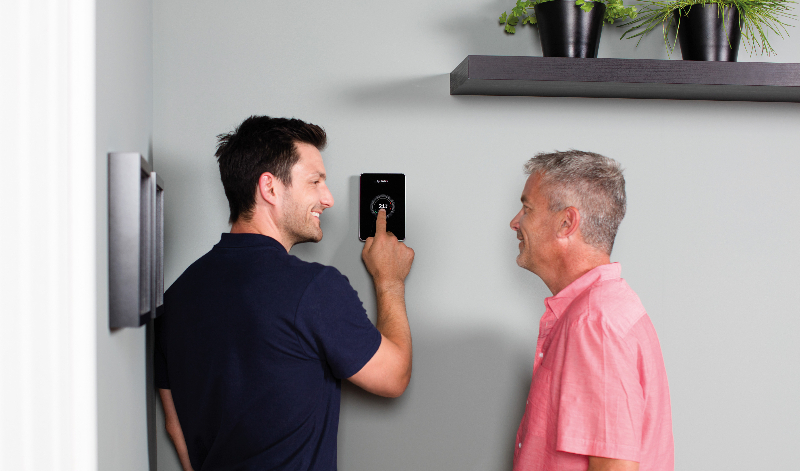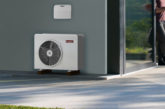
Martyn Bridges, Director of Governmental and External Affairs at Worcester Bosch, looks at four ways to maximise boiler efficiency.
The government’s consultation on raising product standards for space heating concluded in March. We’re now waiting to see how our responses to its 96 questions will be actioned.
Some of the proposals involve removing certain boiler controls from the market. It principally highlights on-off controls, the ‘old-fashioned’ thermostats that literally switch off the boiler once the room reaches the desired temperature.
Controls are an important component and for some years, Load or Weather compensation controls modulate the output of boilers to their absolute minimum whilst still achieving the desired room temperatures. Let’s take a look at what the proposals could mean for consumers and the strategies that could make their heating more efficient.
New combi boilers have energy-saving controls
The Boiler Plus standards that were introduced in 2018 require installers of gas-fired combi boilers to implement modulating controls for additional energy efficiency. These are known as load compensation or weather compensation controls, and they’ve been a requirement for every combi boiler installed in the UK for the past seven years.
Rather than turn the boiler on or off, these controls use two-way communication to inform the boiler of how much heat is required. The controller can then regulate its temperature downwards to operate at the minimum output needed to provide a comfortable level of heat in the house.
The importance of controls
Controls improve the energy efficiency of a boiler by lowering the temperature it runs at and increasing how much it condenses. And critically, it’s not just boilers installed after 2018 that are compatible.
The majority of combi-boilers that predate the Boiler Plus Standards also have the ability to modulate and communicate with controls. It’s very rare that a boiler produced in the past 15 years can’t be controlled in this way. In fact, the Worcester range of Comfort controls have been doing this since 2014.
Replacing on-off thermostats with load or weather compensation controls is a surefire way to increase efficiency. But even if the capacity is there, the homeowner must be open to the upgrade.
Controls can be challenging to install
In most cases, new controls need to be electronically wired to the boiler by a professional. The potential for disruption stops many homeowners from even considering installation.
It’s also often the case that homeowners only think about upgrading their heating system once it stops working. But if the homeowner isn’t interested in changing controls, they can use other techniques to improve heating efficiency.
Manually lowering the temperature
Combi boilers with separate controls for hot water and heating can be adjusted manually – and it’s a simple enough adjustment to be made by the homeowner. Modulating the thermostat down to 50 to 60 degrees centigrade is usually sufficient to provide enough warmth to heat the home while lowering the overall output.
Essentially, this emulates the action of a load compensation boiler by lowering the flow temperature to optimise its condensing. It just requires manual adjustment.
Balancing the heating system
Another method is to make sure the heating system is correctly balanced, though this technique requires the expertise of an installer. It’s an essential fix for heat pumps, but also important for boilers.
With a condensing boiler, homeowners should endeavour to reach a 20-degrees centigrade differential between the incoming flow to a radiator and the outgoing return.
This is usually achieved by regulating the radiator’s lockshield valve and measuring the incoming and outgoing temperatures on the two pipes, then adjusting to achieve the 20-degrees difference.
It’s a more straightforward fix if the thermostatic radiator valves are auto-balancing, which uses a new technology and makes it easier to set up.
Checking for water quality
A water quality check is another worthy consideration. This is a professional check to assess the efficacy of any inhibitor installed within the system, and whether the water is contaminated with impurities. Contaminants such as oxygen ingress or discoloured water could hamper the transfer of heat into the water.
In that case, it’s certainly worth flushing a system with a power flush regime or even just a gravity flush. Clean water can pay dividends for boiler efficiency.
Checking the timings
With many heating systems, we find the timings of the heating on and off periods are not tuned to the householder’s living patterns. The factory settings are generally just an estimate of the typical living patterns of a household; however, with combined energy bills nowadays averaging £1,850 a year for a typical house, any reduction in boiler operating times is worth doing. Just changing the boiler start and end times everyday by 30 minutes will give noticeable savings, yet probably no noticeable change in comfort.
We find that smart controllers are interacted with a lot more, as you can change the timing patterns from the comfort of your sofa on your phone rather than having to stand next to a wall-mounted programmer with the instructions in your hand in some dimly lit airing cupboard.
The future of domestic heating controls
Greater efficiency doesn’t always require expenditure on new controls – it can be achieved through actions as simple as boiler temperature and water quality adjustments. As for the effect on homeowners, time will tell whether the government will mandate domestic controls for all.













